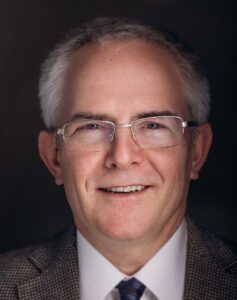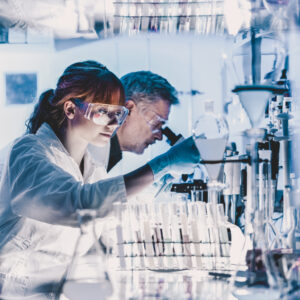Clinical Researcher—November 2021 (Volume 35, Issue 8)
GOOD MANAGEMENT PRACTICE
Robert Hewitt, MB BS, PhD
Biotech companies play a key role in developing new drugs, diagnostics, and vaccines. They are the risk-takers and innovators on which big pharma often depends for new opportunities. They translate promising ideas generated in academia into potential therapies, vaccines, and diagnostics that can be evaluated by the pharma industry.
Biotech companies around the world need reliable patient samples to do their important work, but often have great difficulty accessing such samples. A large part of this unfortunate problem is that patient samples generally originate in public sector healthcare facilities. Being in the private sector, biotechs have limited access to public sector resources.
Clinical research professionals may be involved in the oversight and management of hospital biobanks. For example, they may be members of biobank access committees. This makes it vitally important that they are aware of the difficulties that biotech companies have in gaining access to high-quality samples.
About Hospital Biobanks
Hospital biobanks generally exist in teaching hospitals and academic centers; they are publicly funded and are established for the purpose of supporting research in associated universities and institutes. They require dedicated staff and expensive equipment like liquid nitrogen freezers, so the start-up and maintenance costs are considerable. The start-up phase may be funded by research grants, but it is harder to obtain research funding for the ongoing maintenance costs of these unglamorous yet essential core facilities.
Thus, many biobanks survive on funding provided by their own institution. A typical hospital biobank may have two or three staff working extremely hard on a shoestring budget to provide professionally curated clinical samples for in-house researchers.
One way in which biobanks can develop an independent income stream is to charge a fee for the provision of patient samples. This must be approached with caution, because it is unethical and illegal in many countries to make a profit from the sale of human tissue. However, biobanks are allowed to charge a carefully calculated cost-recovery fee.
Access to a biobank’s samples is decided by scientific and ethical committees that are populated by various institutional members (e.g., scientists, clinicians, administrators, ethicists) with the frequent addition of a patient representative. These committees judge the merits of each application for samples and operate according to institutional policies.
One issue that sometimes reduces the likelihood that samples will be provided to industry is the concern that some patients may not want their samples to be used by commercial organizations standing to make a profit from them. Whether patients react in this way is very much dependent on how matters are presented to them and how the societal value of industry research is emphasized, if at all.
In many cases, these biobanks are open to applications from industry—in theory, at least. Biobanks of different specialties can be found in various national and regional biobank directories, but unfortunately their level of interest in working with industry is often obscure and this can make useful biobanks hard to find.
Why Small Biotechs and Big Pharma Are Very Different
Sample access problems are a bigger for biotech companies, which are generally smaller and younger organizations, than for established pharma companies. For one thing, these pharma companies will have had many years to develop networks of hospital suppliers of samples. For another, the fact that pharma companies sponsor clinical trials gives them access to hospitals, doctors, and patients. Many large pharma companies have teams of dedicated clinical sample procurement staff and their own in-house biobanks, which often dwarf the biobanks found in typical hospital biobanks.
In contrast, a small biotech company, particularly a start-up, has none of these advantages and certainly cannot afford to have staff dedicated to sample procurement.
The Commercial Broker
In general, the easiest way for biotech companies to obtain samples is to get them from a commercial broker. These companies have the sole focus of providing clinical samples for industry, and naturally they are driven by the need to make a profit.
Brokers generally find it difficult to obtain their samples from hospitals and biobanks in western Europe, where ethical concerns about the sale of human tissue are prevalent. Some countries in Eastern Europe and parts of Asia provide a more important source. The United States is one industrialized country where brokers are much better accepted. Many U.S. hospital biobanks are willing to supply brokers. The majority of brokers are based in the U.S., and many have sample procurement operations that extend across global networks.
Scientifically speaking, the main disadvantage of using a broker is that sample provenance may be lacking (brokers tend not to reveal their sources for business reasons). Along with this, there may be uncertainty about the quality of the samples and hence the reliability of resulting research.{1}
Better Solutions
So, what can be done to provide industry, and particularly small biotech companies, with high-quality, reliable samples? This is important because all of us as patients (past, present, or future), depend on the drugs, diagnostics, and vaccines that biotech companies make possible. The answer is that some practices that need to be encouraged, while others need to be discouraged.
Encouraging Best Practice
It must surely be best practice for researchers to obtain biosamples direct from source—that is to say, directly from the hospital biobank that collected the sample from the patient. In this way, they can have the most confidence that samples and their related data have been collected professionally.
To encourage this, we need to make it easier for biotechs and hospital biobanks to find each other. Biotechs can search a number of biobank directories to find suitable partners, but this is often a difficult approach. Many of the biobanks listed may not be open to working with industry or may give companies a low priority. Use of biobank directories often results in a lot of disappointing false leads.
One initiative that offers a solution to this problem is an online platform called Biosample Hub, which is dedicated to bringing biotechs and academic/hospital biobanks together and restricts its use to these two groups. It includes a directory of biobank members, a directory of biotech members, a directory of sample requests, and social networking features. The only reason for biobanks to be on the platform is to supply industry, so the problem of false leads is minimized. One other key aspect of the platform is that it is a not-for-profit entity, so this overcomes the aforementioned profit-seeking ethical concerns related to some biobanks.
Another way to encourage this is to make it more attractive for hospital biobanks to work with industry. In other words, there need to be more and bigger incentives. The problem is that, for many hospital biobanks, local academic researchers get top priority, other academic researchers get second priority, and industry gets third priority, if at all. This is natural, because these biobanks are established as institutional initiatives, with the purpose of serving their own institution. The focus of academic biobanks is very much on research productivity as measured by publication impact, and unfortunately industry is restricted in when and how much work it can publish for reasons of intellectual property.
The incentive of funding is certainly the most viable option for getting hospital biobanks to work with industry. Biobanks need funding and often operate on very limited budgets. Much has been written about biobank sustainability, especially in terms of financial sustainability. One approach is for biobanks to charge industry both a cost-recovery fee for its samples and a fee for additional sample processing services like cutting sections and extracting DNA. This approach seems to be especially well understood by French biobanks, which apply the term “valorization” to the process of adding value to and yielding value from their samples.
Almost half of the biobanks that have joined Biosample Hub are French and most offer additional sample processing services. All French hospital biobanks are certified according to the French norm NF S96-900, which must also make them more attractive to industry.
Another approach is to make external grant funding of biobanks conditional on service to industry. This could be aided by making it mandatory for funded biobanks to make their sample access policies public, by requiring annual reports on sample distribution, and perhaps even by having industry representatives on sample access committees. Patient representatives are well accepted, so why not industry representatives?
An example of the kind of support needed is provided by the following statement from the UK Medical Research Council (MRC): “The development of new drug therapies, and diagnostic and screening tests, to the point where they can be made sufficiently widely available to benefit human health, is crucially dependent on commercial involvement. Therefore access by the commercial sector to samples of human material collected in the course of MRC-funded research should be facilitated, where this is consistent with our mission.”{2}
Discouraging the Use of Samples That Lack Provenance
New regulations are likely to have a major impact on how biotech companies source clinical samples. An example is provided by the new European regulation governing manufacture of in vitro diagnostic devices (IVDs), which comes into force on May 26, 2022. To demonstrate conformity, makers of IVDs must show that the biospecimens used to validate their devices have undergone acceptable pre-analytic processing. This will require the sourcing of samples from biobanks that are certified to meet specific quality management standards.
As a result, diagnostics companies will need to obtain samples from known sources that provide full provenance information. This need for provenance information will put pressure on commercial brokers to change their business practices and reveal the source of their samples. One way for brokers to manage this is to avoid their own circumvention by use of binding contracts with both the provider and the requestor of samples, thus preventing them from interacting independently of the broker. Of course, not all companies or biobanks will be comfortable with such restrictions.
There are technological solutions that can be used to ensure the reliability of provenance information of samples, and use of these will be beneficial. The use of blockchain is one example; this digital technology allows tracking of the transfer of biospecimens from the patient donor to the researcher in a secure, transparent, and ethical manner, with all transactions documented in an incorruptible, shared digital ledger.
What Do Patients Want?
The time seems ripe for a major change in the way clinical samples are sourced by industry and by smaller biotech companies, in particular. Now more than ever, the general public understands the importance of biotech and pharma companies. As a result of the pandemic, we all understand why supporting these companies is important.
Thus, the question is: Do we want to allow biotech companies to have access to the best quality patient samples, in order to speed up development of new therapies, diagnostics, and vaccines? Or do we want this access to be blocked for a variety of possibly short-sighted reasons? As patients (past, present, and future), we need to deliberate and decide—then, perhaps, patient advocacy organizations will act on our behalf.
References
- https://www.appliedclinicaltrialsonline.com/view/point-view-traceability-and-transparency-should-be-mandatory-all-human-biospecimens
- https://www.ahspartnership.org.uk/images/cmsimages/TCTU/Human_Tissue_and_Biological_Samples_for_use_in_Research_-_Operational_and_Ethical_guidelines%5b1%5d.pdf

Robert Hewitt, MB BS, PhD, is the founder of Biosample Hub, an international, not-for-profit platform connecting biotech companies looking for samples with biobanks that have ethically sourced samples available.



